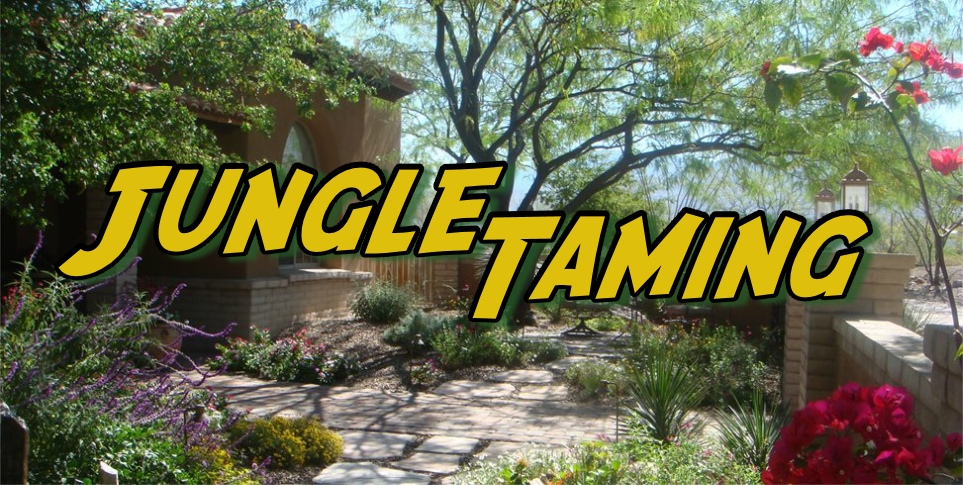 D.A. Hensley in his well-known text book, Professional Landscape Management, says that turf requires more maintenance than all other plants that may be in your yard. Here is his “maintenance” ranking:
D.A. Hensley in his well-known text book, Professional Landscape Management, says that turf requires more maintenance than all other plants that may be in your yard. Here is his “maintenance” ranking:
- Turf
- Espalier and topiary
- Annuals/perennials
- Groundcovers
- Shrubs: deciduous and evergreen
- Evergreen trees
- Deciduous trees
Did you know there are some 50,000,000 acres of lawns in the U.S.A and 40 Billion dollars spent by homeowners and businesses for lawns annually?
As many of my readers know, I’ve been involved in the Green Industry for many years. Now that I am in the early autumn of my life, I have chosen to devote most of my time to Lawn Care Consulting. It is designed to uncover the causes of a lawn’s decline and to suggest the solutions to correct the problems.
My preparation for this endeavor is based upon:
(1) Being introduced to the love of plants as a teenager at the Clemson Sandhill Experimental Station in N.E. Columbia during the mid-1950 s,
(2) Graduating from Clemson University with 2 degrees,
(3) Starting and operating a plant nursery,
(4) Operating a landscape business for over 20 years,
(5) Becoming a “Licensed Pesticide Applicator” (in order to apply pesticides to control weeds, insects, & fungus problems in the landscape).
(6) Teaching landscape and horticulture courses at Midlands Technical College for several years.
In my role as a Lawn Care Consultant, I have found that more than a few homeowners are dissatisfied with their lawns. As stated in last month’s article, the homeowner will sign up with lawn service “A” for 1 or 2 years, become dissatisfied, discontinue that service, sign up with lawn service “B” and the cycle begins again.
How do we break this needless cycle? Now don’t get me wrong, there is no such thing as a perfect lawn. There are several good Lawn Care Professionals out there. They care about you and your lawn or they would not be in business very long. However, problems keep popping up, and Lawn Care Professionals and homeowners keep pointing fingers at each other. The disorder/disease symptoms of a lawn are obvious because everyone can see that the lawn is declining in beauty. However, when the finger pointing starts, the reasons for the symptoms are sometimes hard to figure.
LET’S TAKE THE PRESSURE OFF THE LAWN CARE PROFESSIONAL
Before contracting with a Lawn Care Professional, I suggest that you analyze the health of your lawn. Take a soil sample to analyze the level of soil nutrients and soil pH. Look for thinning or yellowing patches in your lawn and send a sample to your local county extension office to see if you have harmful nematodes and fungus. For the last 12 months make a list of chemicals applied, the rate of application, and the date of application. Note the frequency, duration, and time of day when you are watering. Make any changes your extension office recommends. Take pictures which show the condition of your lawn before you implement any changes. Then, one year later, after you have instituted changes, take another set of pictures to see if there is an improvement.
A review of the cultural practices & various tests results mentioned above can be conducted by the Lawn Care Professional, the Homeowner or a Lawn Care Consultant who, hopefully, is also a Licensed Pesticide Applicator. A word to the wise, very few homeowners know the proper procedures for collecting good samples, interpreting test reports and deciding what/when changes need to be made.
LAWN CARE CONSULTANT
When I started my lawn care consulting business a few years ago, by chance, I began analyzing lawns which were being cared for by a very well-known yard Chemical Service Company. I use the names Lawn Care Professional and Chemical Service Company, interchangeably. Now mind you, I was being hired by the homeowners. I discovered no major problems, but the reason I was called in was to find out why the yards were in various states of decline. I became concerned, that this Chemical Service Company /Lawn Care Professional might respond negatively to my analyzing their yards, especially if the homeowner decided to drop their services.
I phoned the manager of this company, and explained what I was doing. The voice on the other end responded with, “You don’t know WHO you are talking to.” There are some phrases you don’t want to hear in doing business with the public. They are: “I thought you said,” “You will hear from my lawyer,” and “You don’t know who you are talking to.” There was silence and I answered with a calm voice: “no.” Then he laughed, and said: “My name is …we will call him Bill… I took your lawn care course a few years ago at Midlands Technical College.” We had a very pleasant conversation, and he added: “We have so many yards under contract, and I don’t have enough people to go into the detail that you do. Feel free to call me anytime you find a problem in one of our yards.”
THE SOLUTION
In situations like the one described above, it is the homeowner’s responsibility to analyze problem(s) in his yard, or hire someone else to do so.
One solution is for the homeowner to hire a Lawn Care Professional that will agree to analyze the lawn for a clean bill of health, before regular monthly visits begin. If there are problems, have the Lawn Care Professional correct the problems, and be willing to pay him for the correction, in addition to, the regular monthly maintenance program. This will take the pressure off the Lawn Care Professional.
Another solution to the problem is to hire an independent, third party, Lawn Care Consultant.
If you choose the latter, here are the steps to take:
(1) Before beginning or renewing a lawn care contract, have a Lawn Care Consultant verify that there are no problems in the existing lawn.
(2) If there are problems, get recommendations for treatment.
(3) Have the Lawn Care Professional address the problem(s) before the monthly maintenance service contract begins.
(4) Take pictures before the treatment & monthly service begins and compare those to pictures taken 1 year later.
If the reader has a problem yard and is a Lawn Care Professional or a homeowner, please contact me. I can be your third party Lawn Care Consultant to help you get to the bottom of the problem before the finger pointing begins. It is a win, win, win opportunity. My services are described below.
SERVICES OFFERED
LAWN INSPECTION
COWART LANDSCAPE CONSULTING LLC
(803) 513-4242
cowartconsulting@gmail.com
My mission/motto is to: “Arm the Homeowner and Lawn Care Professional with Knowledge”.
There are many reasons for turf decline. Turf decline can be caused by dry soil, excess moisture conditions, too much fertilizer, fertilizer applied at a wrong time of year, excess herbicide, herbicide being applied at the wrong time of the year, winter injury, pathogenic fungi, harmful insects and pathogenic nematodes to mention a few.
The 2 services I offer are:
- An “onsite” service which includes asking the homeowner for a brief history of the lawn for the past 2 years (fertilizers, herbicides etc.), inspection of your irrigation controller, measuring the square footage of your lawn, recommending the changes that the homeowner may do to improve the turf. The homeowner is to make notes while I analyze the problem. These notes are to be e-mailed to me to be tweaked and returned to the homeowner. The charge is $90.00 for about 1 to 1.5 hours.
- A “laboratory service” which is more “in depth” because it includes collecting soil samples and if indicated, testing for nematodes and pathogenic fungus/insect problems. The samples will be sent to Clemson University, and a written report with recommendations will be made based on the results of these tests. Cost: $210.00.





